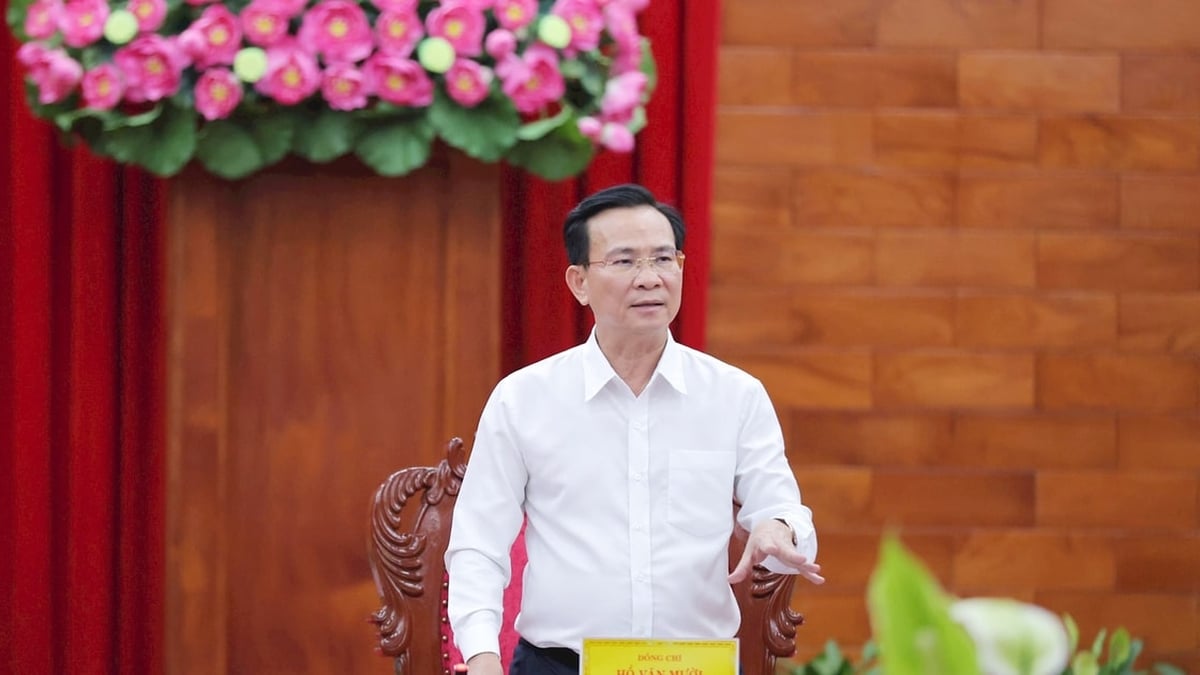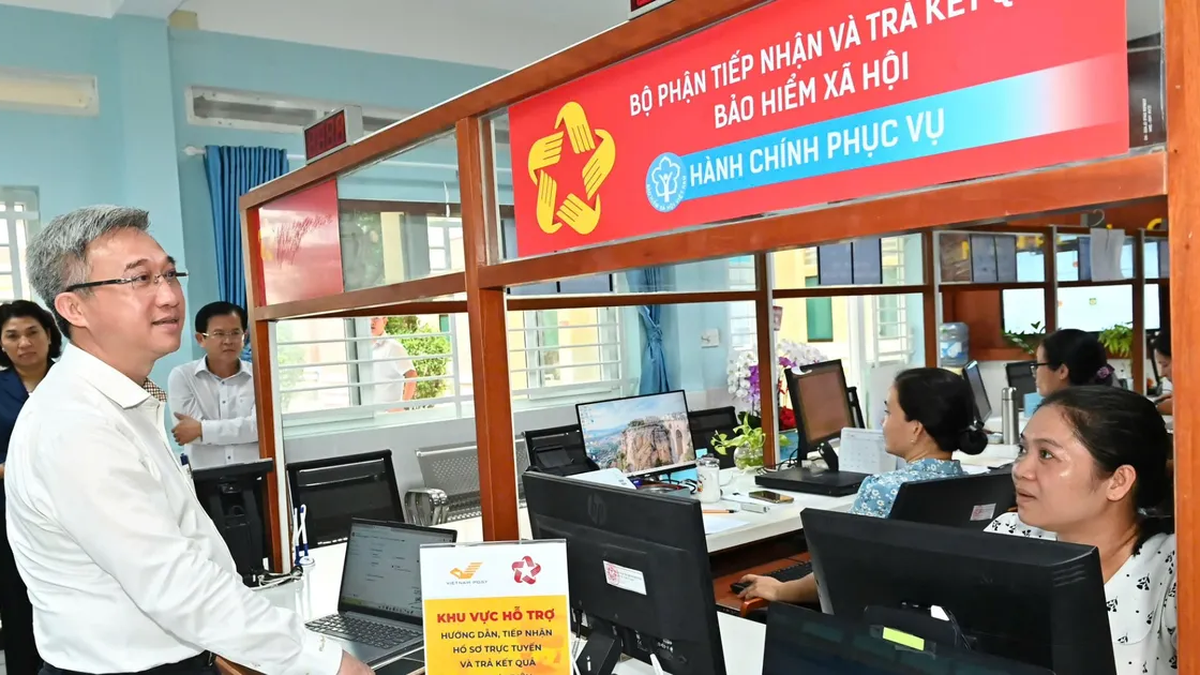Regarding the Vietnam Electricity Group (EVN) increasing the average retail electricity price by 4.8%, to more than VND2,200/kWh from May 10, Dr. Nguyen Bich Lam, former General Director of the General Statistics Office, expressed his agreement with this adjustment, in the context of limited supply and high input costs, especially renewable energy sources, imported coal power sources or imported electricity sources with high prices.
However, Mr. Lam emphasized that EVN needs to make its costs public to prove that the adjustment is reasonable and necessary. When increasing electricity prices, EVN explained that input costs are continuously increasing, especially the structure of high-priced electricity sources is increasing, while cheap electricity sources such as hydropower are gradually decreasing. However, this explanation is not detailed and convincing to people and businesses.
" Currently, the Government has given EVN the right to increase electricity prices by less than 5%, so EVN must publicly and transparently disclose all costs and components of electricity prices to the people because now it must follow the market mechanism ," said Mr. Lam.
In addition, EVN also needs to continue cutting costs to avoid increasing electricity prices during peak times like now. According to Mr. Lam, EVN should not have increased electricity prices at the beginning of the second quarter, which is considered the peak quarter of the year, but should have increased them at the end of the fourth quarter to reduce pressure on people and businesses, at the same time the CPI and GDP indexes have been determined.
According to Mr. Lam, because it is an indispensable commodity in people's lives and production and business activities of enterprises, increasing electricity prices can reduce GDP and increase CPI.
“ A 4.8% increase in electricity prices could cause CPI to increase by about 0.26 percentage points and GDP to decrease by about 0.21 percentage points ,” Mr. Lam predicted.

Average retail electricity price increased by 4.8% from May 10. (Illustration photo)
Sharing the same view, according to Dr. Ngo Tuan Kiet, Director of the Institute of Energy Science, the increase in electricity prices is inevitable because the cost of the electricity industry is increasing. However, EVN does not necessarily have to adjust electricity prices every 3 months because the increase in electricity prices will certainly affect the economy and people's lives.
" In addition, the continuous increase in household electricity prices will make people ask: Why is EVN still losing money? Therefore, it is necessary to have transparent information for people when adjusting electricity prices ," Mr. Kiet emphasized.
Dr. Le Dang Doanh, former Director of the Central Institute for Economic Management, said that in the current context, increasing electricity prices is aimed at reducing losses for the electricity industry. According to regulations, electricity prices can be adjusted every 3 months. However, since the price increase in October 2024, it has been more than 6 months since EVN made the adjustment. Therefore, this increase in electricity prices is understandable and the 4.8% increase will not greatly affect the 8% economic growth target set by the Government.
However, EVN needs to make more efforts to stabilize electricity prices to reduce the impact, while businesses and consumers need to have solutions to use electricity economically and effectively.
Meanwhile, answering on the sidelines of the National Assembly, delegate Nguyen Quang Huan ( Binh Duong delegation) said that electricity is the backbone industry. If EVN does not have enough resources to reinvest, expand, upgrade technology, and apply science and technology, the electricity industry will fall behind the region and the world and affect the economy.
"I support the roadmap to increase electricity prices because our country's current electricity prices are quite low, especially compared to developed countries, they are very low," said Mr. Huan.
However, delegate Huan emphasized that the increase in electricity prices needs to have a specific roadmap and be publicly and in detail announced to people, businesses, and consumers. In addition to increasing electricity prices, we also need to have supporting policies, because the Party and State's viewpoint is to leave no one behind.

Delegate Nguyen Quang Huan.
"Although the poverty rate is currently very low, it is necessary to calculate the ability to support these households so that they can feel secure and support the policy," the delegate proposed.
Regarding industrial production, Mr. Huan commented that Vietnam's electricity price is not high compared to other countries in the region. "If we do not raise electricity prices, a part of the population may benefit, but on the contrary, the whole economy will suffer. FDI enterprises take advantage of cheap prices, refuse to improve technology, and bring outdated technology into our country," Mr. Huan commented.
According to Mr. Huan, electricity prices do not need to increase too much but must be on par with other countries in the region. Policy makers and economists should conduct thorough research to submit to the Government for reasonable decisions, balancing input and output costs for businesses and ensuring that people can afford it, the State does not suffer losses and EVN has money to develop and invest.
Recently, at the seminar "Ensuring electricity for growth - Requirements and solutions" organized by the Government Newspaper , energy expert Ha Dang Son said that currently, if comparing the average electricity price in Vietnam with other countries in the region and internationally, it can be seen that the average electricity price in Vietnam is at the same level as China and India.
This price is higher than Laos or Malaysia, countries with their own advantages such as hydropower resources (Laos) or domestic oil and gas (Malaysia).
In contrast, many other countries in the region have higher electricity prices than Vietnam, such as Indonesia, Thailand, Cambodia, Singapore and the Philippines. In Singapore alone, electricity prices are now approaching those of Japan. In Thailand, after reforming the electricity pricing mechanism, especially switching to an hourly model, the average electricity price has increased sharply compared to 3-4 years ago, even one and a half times higher.
From this, we can see that the problem is not simply "whether electricity prices increase or decrease", but how to make electricity prices reflect the true nature of production costs, ensuring stability and sustainability in investment and operation of the national power system.
Many developed countries are also gradually shifting to a market mechanism in setting electricity prices - transparent, fully factoring in costs and linked to the trend of investing in clean energy.
“If Vietnam maintains electricity prices lower than actual costs for a long time, it can create a temporary competitive advantage for production or social security. However, this poses a risk of imbalance in infrastructure investment, does not ensure stable electricity supply, and is unsustainable in the long term.
Therefore, the fundamental solution to create peace of mind for investors is to have a reasonable and transparent roadmap for adjusting electricity prices, reflecting true costs, and at the same time have policies to minimize social impacts when adjusting. This requires harmony between social security goals and market mechanisms," said Mr. Son.
According to EVN's calculations, the new average retail electricity price adjustment will impact the CPI by 0.09%.
Specifically, for households using less than 50kWh of electricity, the electricity bill increases by about 4,550 VND/household/month. From 51 - 100kWh, the electricity bill increases by 9,250 VND/household/month. From 101 - 200kWh, the increase is 20,150 VND/household/month.
Customers using 201 - 300kWh must pay an additional 33,950 VND/household/month; using electricity from 301 - 400kWh, the additional cost is 49,250 VND/household/month; from 400kWh or more, the increase in electricity bill is about 65,050 VND/household/month.
Poor households and social policy households will be supported with monthly electricity bills equivalent to the amount of electricity used by 30kWh/household/month.
For social policy households with electricity usage of no more than 50kWh/month, the support level is equivalent to the amount of electricity used by 30kWh/household/month. The support level for poor households and policy households is 56,790 VND/household/month.
Therefore, if the new price is applied, each poor household will receive electricity support of about 59,520 VND/household/month (excluding value added tax). This policy aims to reduce the burden of electricity costs for poor households and social policy households, helping to ensure social security and implementing the Government's policy on supporting disadvantaged groups.
Source: https://vtcnews.vn/tang-gia-dien-4-8-evn-can-cong-khai-cac-khoan-chi-ar942505.html




















































![[Maritime News] More than 80% of global container shipping capacity is in the hands of MSC and major shipping alliances](https://vphoto.vietnam.vn/thumb/402x226/vietnam/resource/IMAGE/2025/7/16/6b4d586c984b4cbf8c5680352b9eaeb0)













































Comment (0)